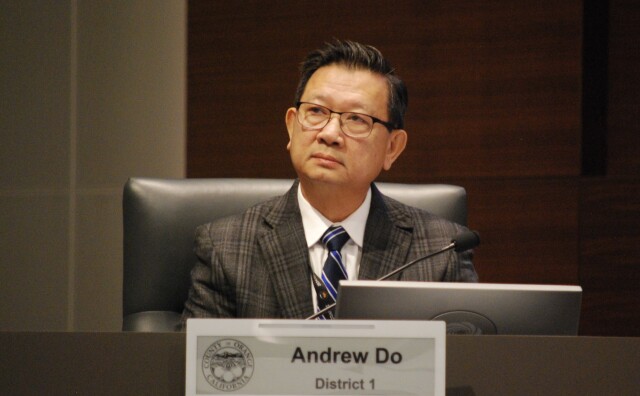In the lead up to the U.S. presidential election, "Imperfect Paradise" will be sitting down with four notable Californians to talk about a range of issues including gender, race and democratic values.
First up is renowned philosopher and gender studies scholar Judith Butler, who released their latest book Who’s Afraid of Gender? earlier this year. In the book, Butler traces how right-wing movements have taken up gender ideology as a political target, including in the U.S.
According to the ACLU, since 2015, political attacks against LGBTQ people in U.S. state legislatures have grown exponentially. There are currently 530 anti-LGBTQ bills in the U.S.
How and why did gender become a focal point for the right?
Antonia Cereijido, host of LAist Studio's "Imperfect Paradise," asked Butler to reflect on how they’ve seen these dynamics play out on the political stage ahead of the November elections. Interview excerpts have been edited and condensed for clarity.
Butler reflects on Republican vice presidential nominee J.D. Vance calling Democrat leaders “childress cat ladies”:
It's such a wild act of misogyny on his part to call out so-called “childless cat ladies." It's appealing to a form of hatred and disdain that some conservatives have towards women who are not reproductive or find fulfillment in other areas of life. Maybe they have an art. Maybe they have a job. Maybe they're blended into other people's families or their own. Maybe they're part of wild kinship networks that are quite sustaining and beautiful.
Vance is, at this moment in his rhetorical career, returning to the idea that the only possible true fulfillment for women is giving birth and motherhood. That's part of what I call in the book the fantasy of restoration — the restoration of a patriarchal order. And this is what's being called for: the restriction of freedom and the restoration of inequality inside the family.
Butler explains why they believe some right-wing movements globally have taken up “gender ideology” as a target of political ire, and why it’s effectively riled up their base:
In my conversations with young people, a lot of them have said to me they don't really think there is a future. There has been a kind of despondency, if not political pessimism.
We find hypercapitalism, which is producing greater inequalities of wealth [...] deep, economic and social inequalities, which are, of course, intensified by racist forms of stratification. They add to a sense that the world is becoming less livable for the majority of people. [...]
When authoritarians come along or populist movements come along and say, “Oh, you know what's making you feel so anxious? It's gender, or it's critical race theory, or it's migrants.” I think many people are vulnerable to that because some of these concepts are strange to them [...]
So once that kind of discourse gets going, people can end up thinking, “Oh, my life is going to be restored to order, stability, harmony, my place in the world is going to be restored if we get rid of gender.”
Butler weighs in on how they’d like to see the left counter right-wing rhetoric and the campaign of Democratic presidential nominee Kamala Harris:
We [the left] become nerdy. We were righteous. We fight with each other [...] And it's like, well, wait a minute, what do we want to build? What passions would we like to see unleashed in the world?
And you know, I've been taken by the joy of the Kamala Harris campaign. That in part is Black joy, and it's a tradition of joy that is deep in Black culture and that has been part of the survival of slavery — its aftermath of systemic racism, its years of segregation.
So my question for the left is “how do you want to imagine the future?”
What is it that we want to see realized on this earth? Like, you could say freedom and justice and equality, but what's the tangible acoustic sense of that, right?
Let us imagine freedom in a way we have not before. Make it exciting. Make it sexy.
Listen to the full interview here:








